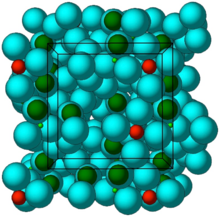
AstraZeneca today announced that the US Food and Drug Administration (FDA) has issued a Complete Response Letter (CRL) regarding the New Drug Application (NDA) for sodium zirconium cyclosilicate (ZS-9), the investigational medicine being developed for the treatment of hyperkalemia (high potassium level in the blood serum) by ZS Pharma, a wholly-owned subsidiary of AstraZeneca.
The CRL refers to observations arising from a pre-approval manufacturing inspection. The FDA also acknowledged receipt of recently-submitted data which it has yet to review. The CRL does not require the generation of new clinical data. AstraZeneca and ZS Pharma are evaluating the (see structure of ZS-9 (sodium zirconium cyclosilicate) content of the CRL and will work closely with the FDA to determine the appropriate next steps for the NDA.AstraZeneca remains committed to the development of sodium zirconium cyclosilicate as a treatment option for patients with hyperkalemia. Interactions are ongoing with other health authorities in the European Union and Australia, where sodium zirconium cyclosilicate is currently under separate regulatory review.
About Sodium Zirconium Cyclosilicate (ZS-9) for Oral Suspension
Sodium zirconium cyclosilicate (ZS-9) is an insoluble, non-absorbed compound with a structure that was designed to preferentially trap potassium ions. The unique potassium selectivity of sodium zirconium cyclosilicate enables high in-vitro binding capacity for potassium ions even in the presence of other competing ions. Sodium zirconium cyclosilicate has been studied in three double-blind, placebo controlled trials and in one ongoing 12 month open label clinical trial in patients with hyperkalemia which represents over 1,600 patients treated. Sodium zirconium cyclosilicate is an investigational product that is not currently approved for any indication in any market.
About Hyperkalemia
Hyperkalemia (high potassium levels > 5.0 mEq/L in the blood serum) occurs in 23-47% of patients with advanced chronic kidney disease and/or chronic heart failure, and may lead to cardiac arrest and death (mortality of up to 30% in patients with severe hyperkalemia if not treated rapidly). Treatment with common heart medicines (RAAS inhibitors) can also be responsible for increases in hyperkalemia. Current therapeutic options are limited, leaving high unmet medical need.

No comments:
Post a Comment